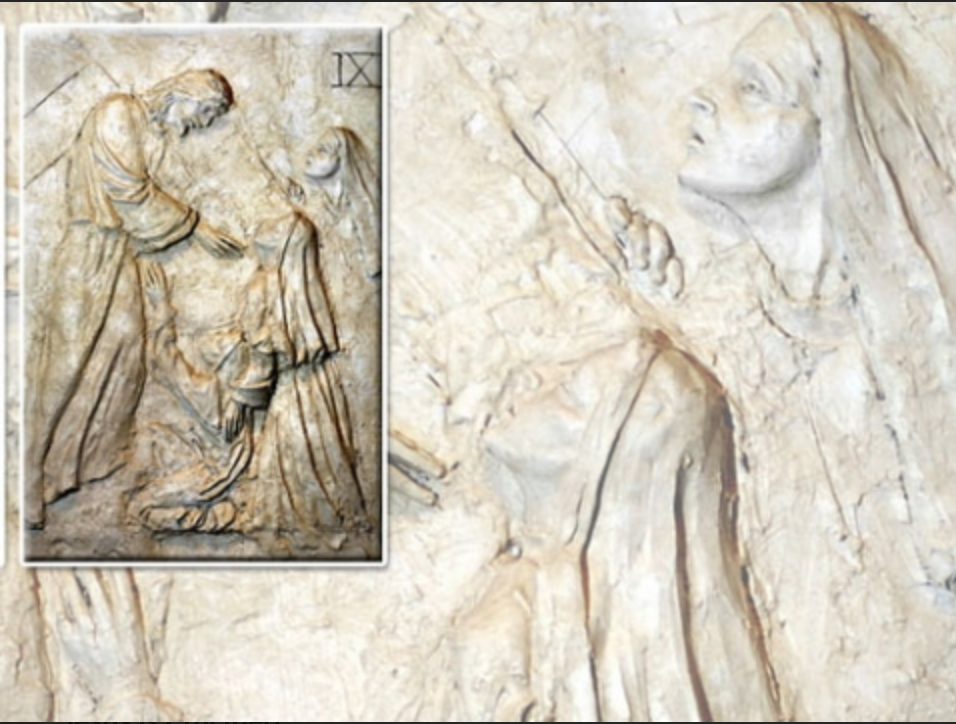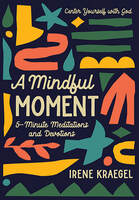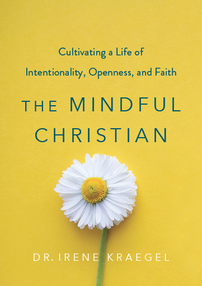A large crowd of people followed Jesus, including many women who mourned and lamented him. Jesus turned to them and said, 'Daughters of Jerusalem, do not weep for me; weep instead for yourselves and for your children, for indeed, the days are coming when people will say, ‘Blessed are the barren, the wombs that never bore and the breasts that never nursed.' At that time, people will say to the mountains, ‘Fall upon us!' and to the hills, ‘Cover us!' for if these things are done when the wood is green what will happen when it is dry? (This post is part of a Lenten series on praying the Stations of the Cross - a devotional practice that is said to have started with Mary after the death and resurrection of Jesus. To start at the beginning, see the overview provided on March 5, 2023, and then go from there!) Reflection In a noisy crowd of persecutors, in his time of deep suffering and fatigue on the way to the cross, Jesus saw grieving women – and he linked his suffering with theirs. There is no blustery talk here about revolution or revenge or retaliation, no lashing out with threats, no posturing, no false promises. Instead, Jesus is authentic and honest about the chronicity of grief, and it is the authentic emotion of the women in the crowd that draws his attention. Without trying to fix it, he names their shared cycle of heartbreak in the face of seemingly nonsensical trauma. There is an intimacy in this image, Jesus sharing grief with the women. It reminds me of when he wept with Mary of Bethany, just before he raised her brother Lazarus from the dead – he weeps with those who weep, even when he knows better things are to come. Jesus seems to know women can handle this kind of authenticity, and he’s not afraid to be real with them. He even knows they can handle the naming of future suffering, acknowledging that life is hard (past, present, and future) and there is no way around that. Even with Jesus, the reality of life includes suffering and grief, and these women already knew that deep in their bones by virtue of the time and place in which they lived. His authenticity is validating of their emotional experience. Relational connections are at the heart of Jesus’ words here. He speaks to the women together as a group. He calls them “daughters of Jerusalem,” acknowledging their deep family ties to their people and to the city in which they live. He names their care for their children. This passage reminds me that when the going gets tough, that’s the time to circle up around Jesus. Be in community. Express authentic emotion. Allow Jesus to turn toward you in the intimacy and validation of shared grief. He’s not afraid of what is difficult, and he walks with you in solidarity. Also, you might want to keep your eyes out for some authentic women to show you the way. A note about mindfulness When cycles of heartbreak are crashing like waves, we need to grieve. Pressures from the world can lead us to think we need to be strong and defiant in times of suffering. Mindfulness practices help us cultivate a less blustery relationship with suffering, encouraging non-judgmental connection with whatever our emotions are, just as Jesus did with the women of Jerusalem. (For a list of mindfulness practices that support nonjudgmental connection with your emotions as you pray the Stations of the Cross, check out the Guides for Practice available here.)
0 Comments
Leave a Reply. |
Author
I am Irene Kraegel. I am licensed as a clinical psychologist and teach mindfulness on a faith-based university campus. I practice mindfulness because it opens me up to God (a.k.a. brings joy). I am writing here in hopes of sharing some of my experiences and thoughts related to the practice of mindfulness in the life of a Christian. Thanks for reading! Books
Blog archives
December 2023
|



